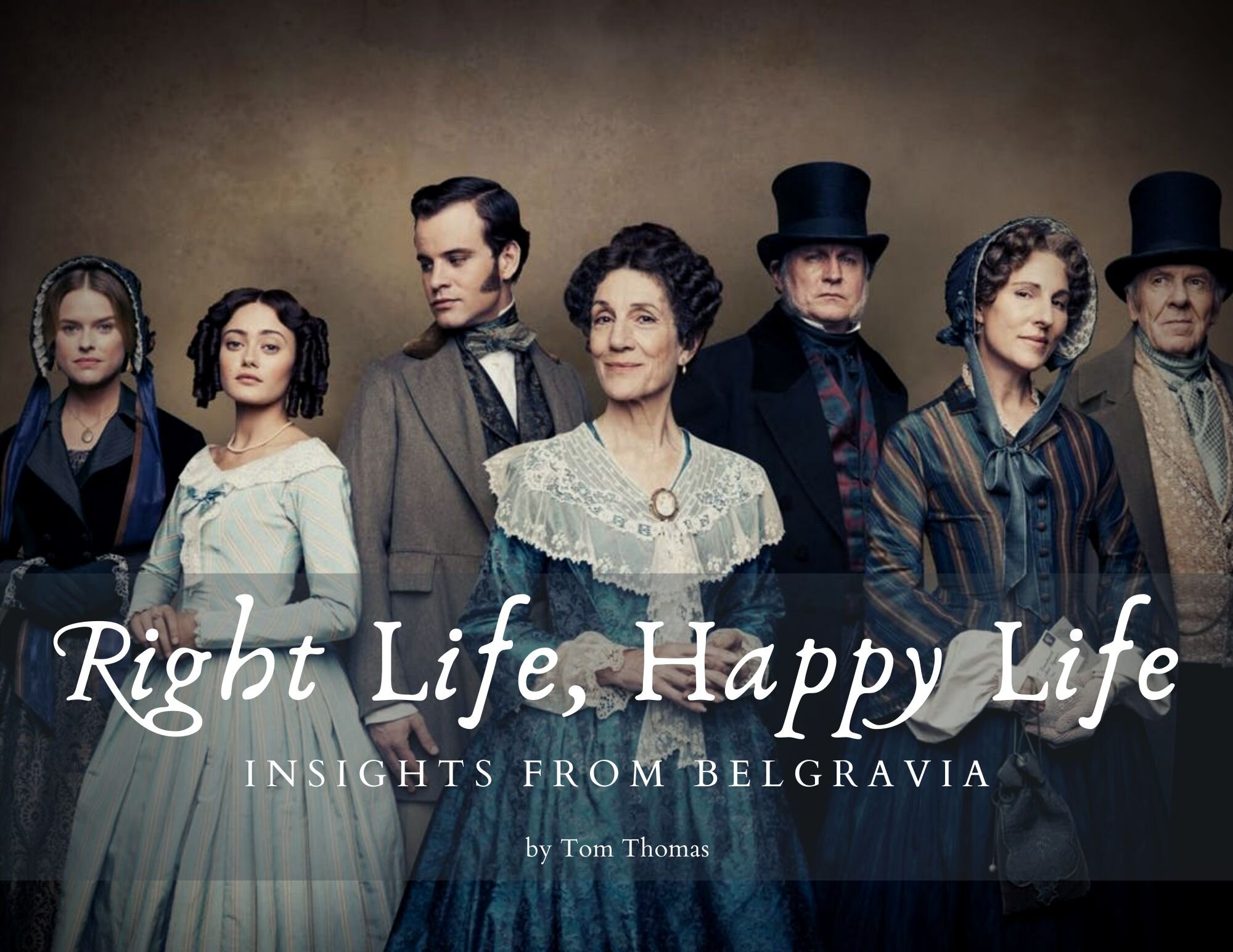Moral Apologetics and Living Sacramentally
/Although I have stepped down from The Worldview Bulletin, it remains close to my heart and I continue to wish my friends and colleagues associated with it all and only the best. This morning in church some ideas came to me in a fresh way, and with the WB’s permission, I thought I’d pass them along. It pertains to apologetics, but this time in a way that focuses on the benefits that can accrue for the believer, not just the unbeliever.
In my spiritual pilgrimage over the last few years, I’ve largely left the culture warrior aspects of my faith behind. I know some continue to wear that mantle proudly, and power to them if that’s what they feel called to do. But my predilections of late have been moving in different directions. One of those directions is to take with greater seriousness the sacramental life, and to do so as a Protestant. There’s much to say here, but the way I plan to delimit this short conversation to something manageable and practicable is to point out some resonances between moral apologetics, which has been my main area of focus for decades, and the sacramental life.
The moral argument for God, as I like to lay it out, involves five components: issues of the good, issues of the right, moral knowledge, and the two dimensions of Kantian moral faith. Allow me to say a few words about each component and how each one has rich insights about and resources for spiritual growth and maturation.
The Good
I think that we as Christians have excellent reason to think not just that God is good, but that he is the Good itself. The highest archetype or exemplar of the Good. This makes Good personal to the core. So to contemplate the Good is an exercise in contemplating God; the Bible is replete with encouragements for us to do this very thing.
A specific value I also enjoy discussing when giving the moral argument is the infinite value of human persons, creatures made in God’s image whose value is derived from that ontological connection. To see the sacredness of others because they have been made in God’s image strikes me as an exercise in sacramentalism. Recall Lewis’s lines about how we’ve never met an ordinary human. Austin Farrer wrote about seeing God in our neighbor and our neighbor in God. The Bible says that when we do something for the least of those among us, we’ve done it for Christ. Cultivating the eyes with which to see the sacredness and infinite value of our neighbor is part and parcel of learning to love our neighbors as ourselves, adjacent to the most important command of all.
The Right
Issues of moral rightness have more to do with the deontic matter of moral obligations than with the axiological matter of goodness, although of course the good and the right are organically tied together. But as Christians we have to take our moral duties seriously. This is not to suggest that doing our duty only has value if we do our duty for duty’s sake; I think Kant was quite wrong to suggest as much. No, as we get closer to God, discharging our duties should increasingly be seen as a joy and privilege. Duties are but the anteroom in the great cathedral or castle of morality; its upper reaches go well beyond our duties; as George Mavrodes once suggested, eventually talk of rights and duties will be left far behind, replaced with talk of gift and sacrifice.
But duties are often the first step. As C. S. Lewis once put it, the road to Jordan runs past Sinai. Time and again the structure of Paul’s New Testament letters first involves indicatives—what God’s done for us—followed by imperatives: what we are to do by way of response to God’s overtures of love and grace. Obedience gives us the chance to grow more closely conformed to Christ, who, the Bible says, himself “learned obedience through suffering.” Our obedience and a biblical response to the invariable sufferings of this life are inextricably connected.
Moral Knowledge
Knowledge is usually thought to involve truth, belief, and justification. Truth pertains to how things are in reality, not the false stories we may tell ourselves, however consoling they may be. Orual in Till We Have Faces kept repeating the same narrative about her life, depriving her of authenticity, of the truth that could liberate her. She couldn’t see the face of God until she was willing to face the truth. This is true of us all. It’s the truth that sets us free, but facing the truth isn’t easy, and we can find all sorts of excuses to avoid it.
Belief is more than what we truthfully assent to. It’s best found in what our actions are. That’s the real indication of our deep-down beliefs, manifested in our dispositions and behavior. What broken beliefs we have deeply embedded within us may well reside in areas of our deepest hurt, where those beliefs, even at an unconscious level, provide some measure of solace, but they may hurt us more than help us. On reflection we’d readily say such beliefs are false, yet they can have a tenacity of their own. Becoming aware of such beliefs, as manifested in our actions, doesn’t solve the problem, but can help us to know how better to pray for God’s deep healing of that brokenness that perhaps nobody else knows anything about.
Justification in this context is less about the biblical idea of justification, and more to do with the issue of evidence. Knowledge typically requires evidence, and contra the idea of many, our Christian lives have plenty of it. The Bible time and again calls on God’s people to look at the evidence of God’s reality and faithfulness; for each of us, God’s track record of faithfulness should be longer by the day. Be intentional to review the evidence, to rehearse the ways God’s shown up and demonstrated his provision and the sufficiency of his grace time and again. Make every occasion of taking communion an exercise in such intentional remembrance.
Kantian Moral Faith
Kantian moral faith involves two things: the grace of God to accomplish in our lives what we can’t do on our own, and the way that happiness and holiness ultimately go together. Regarding the first point, God’s grace answers to three deep existential moral needs we all have: first, to be forgiven; second, to be transformed; and third, to be perfected (posthumously). All three have rich significance for spiritual disciplines. That we can be forgiven means we’re not defined by our worst moments; God forgives and drops those sins into the sea of forgetfulness. And liberates us in the process to forgive others and ourselves. God offers us deliverance from both guilt and shame.
The prospect of being changed, becoming new persons, our hearts of stone being replaced with hearts of flesh, is truly good news. That God offers grace sufficient for us not just to be delivered from our sins, but from sin itself, is about the most hopeful prospect of all. We are all of us sinful creatures, but that’s just a contingent part of our identity; an essential part is our having been made in God’s image. God wants to make us what he intended us fully to be.
Our hope to see this happen will not disappoint. God’s promised to finish the good work he’s begun within us at the day of Christ Jesus. The dream to be perfected—every last vestige of sin being removed—isn’t a pipe dream, but an inevitability, freeing us up to anticipate the glory to come that will make all of this life’s sufferings pale into insignificance by comparison. Defeating, not just counterbalancing, the most hideous of evils imaginable.
Which relates to the second dimension of Kantian moral faith: the ultimate airtight correspondence between happiness and holiness. As my friend and former colleague Chris Kugler recently posted on Facebook, “In the Christian faith, it is simply assumed that our deepest joy is found in our closest likeness to Christ—in other words, that the pursuit of holiness is the pursuit of happiness.” Not only does this resolve what Sidgwick called the dualism of practical reason, making morality ultimately a fully rational enterprise, in a practical way it should hearten every believer, bolstering our resolve to trust God with all of our being, knowing that as we do he will grant us the desires of our heart.
— David Baggett is Professor of Philosophy and Director of the Center for the Foundations of Ethics at Houston Christian University. He is the author or editor of about sixteen books, most recently A Personal God and a Good World: The Coherence of the Christian Moral Vision, coauthored with Ronnie P. Campbell Jr.













































